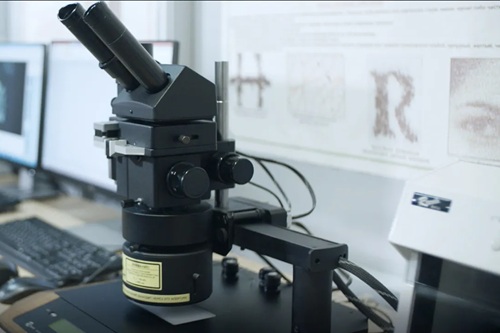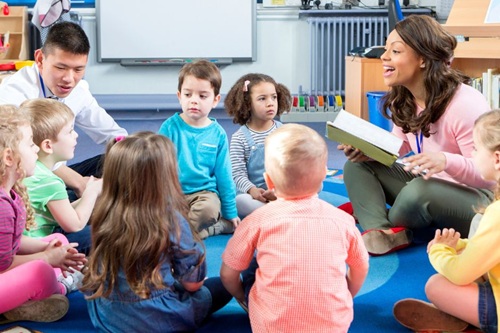Education is the key to a child’s future, and for disabled learners the right setting can be life changing. Private schools usually can offer more individual approach and flexibility often needed for children with disabilities: parents are turning to private schools in large numbers. While most public schools are constrained, to some extent, by federal requirements, private schools can, in many cases, provide their students with opportunities to learn in environments that are fully tailored to their particular needs.
This article focuses on explaining how private schools meet student needs with disability focusing on how they make them feel included, welcomed and valued.
Specific programs and Staff Attention

Private schools are renowned for their flexibility to usher in one on one teaching and learning. Such flexibility is particularly helpful to low performing students, especially those with disabilities. IEP or its equal is used by such schools to plan strategies for each child based on the child’s strengthened requirements.
Number two is about the class size where teachers in private schools teach their students in smaller classes hence many students get individual attention. This kind of approach means that students with disabilities are allowed to grow at their own rate, without feeling compelled to fit this or that program or timetable.
Specialised Documents and Equipments

It was evident that private schools for students with disabilities often spend a lot of funds on modern facilities and equipment that enhance learning. While many schools might provide for basic accessible requirements such as ramps or elevators, these schools provide for so much more.
Also, in private schools, there are sure to be therapists, counselors, and special education staff members on premises and children avail, speech, occupation, or physical therapy during the school time. Some of these services free parents from the need to liaise with other service providers to ensure that the child also receives services that add up to his or her convenience.
Low income, Community attachment and social support
Private schools place emphasis on the community aspect that, in many cases, will be particularly helpful in the cognitive and physiological development of disabled students. Due to this, they make sure that every student is well represented resulting in every students’ feeling and being valued. Some of the ways private schools manage to foster these relations include; peer mentoring, social-emotional learning, and buddy systems.
In addition, most private schools still teach their employees and their learners various ways through which diversity is encouraged as well as embraced. It is in this environment that students with disabilities gain confidence, learn to make friends and feel appreciated.
Here, flexibility in admission and programs.
An inclusive feature of private schools is the fact that special arrangements for children with disabilities are normally made; these may include children with physical, intellectual, emotional or learning disabilities. The schools say that students with autism, dyslexia, ADHD, and other related issues need special programs that private schools can afford to set their own admission policies and programs.
While public schools are bound by the IDEA (Individuals with Disabilities Education Act) private schools are not legally designed by these rules. But they are on contracts with parents which make them more invasive than what the public schools can afford to be.
The last phase into which students with a disability can be integrated is Parent Involvement and Collaboration.
The relationships that private school for students with disabilities has with most of the families that are involved are mostly cooperative. They know that parents want to have some input into what is going on, and promptly include parents in the decision-making process.
Parent-teacher meetings, the child’s progress reports and individual consultations make a provision to meet the child’s needs. This kind of partnership enhances confidence and more importantly ensures that strategies in education from both the school and home are_synonymous.
Small Class Size and One to One Relationship

A feature of private schools is a smaller number of learners per class, something that will effectively assist learners with disabilities. Students feel more at ease discussing or explaining anything with their teachers, and teachers are also in a position to know part or all of the difficulties and abilities of each learner. Such a personal contact usually means a more effective and helpful educational process.
Challenges to Consider
While private schools offer a wealth of benefits, there are challenges to consider:
Cost: Private schools seem to be more costly than public schools, and this becomes a problem to some families.
Legal Protections: Ideally, private schools are exempted from having to observe IDEA unlike the public schools for them. This means that the parents require having a critical look at the school whether the child ‘s need is met by the school.
However, the participants also reported a number of difficulties in learning with the aid of telecommunication technology; still, parents opt for such solutions because they appreciate the focus on individual needs and open acceptance of all students.
FAQ: Hearing Impaired: Selborne College, Graeme High School for Girls, St. John’s College, Michaelhouse, St. Andrew’s College for Girls, Grey High School, St. Helen’s-on-Sea High School and Elisabethville High School.
1. Is it good to send the child with a disability to a private school?
Flexible learning environments, the differentiated curriculum, and a student-teacher ratio make private schools excellent for disabled learners. However, these services depend on the school so the parents need to go through all the available options.
2. Does IDEA legislation apply to private schools?
Yes, there is an exclusion of private schools to adhere to the Implementation of IDEA. However, many provide or even exceed the support through developing their specific programs and contracts with parents.
3. The second research questions are: What kind of disabilities do private schools admit?
Facilities in private schools can cover a variety of different learning disorders such as learning disability and weak reading, development disability such as an Asperger syndrome and other physical disabilities. Some of the schools are more specialized with a given need.
4. How expensive are private schools for students with disabilities?
The tuition also differs as some cost between $10,000 and $50,000 in a year or even more. Some schools provide scholarships or financial aid for those who can no longer afford to pay for their children’s tuition fares.
5. What are the methods of selecting the most favourable private school to admit your child?
Go to the school and hold a discussion with the school staff, enquiring about particular forms of programs and services and evidence of effectiveness of such approaches with kids with disabilities.